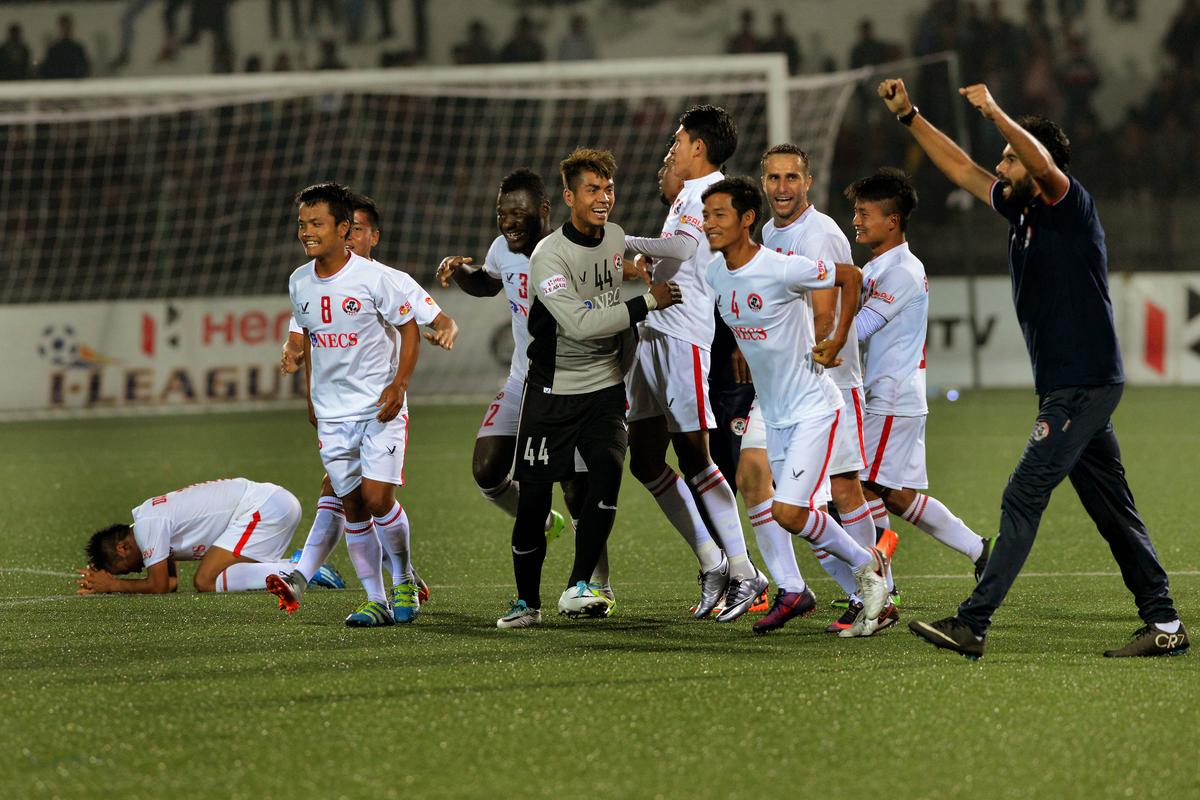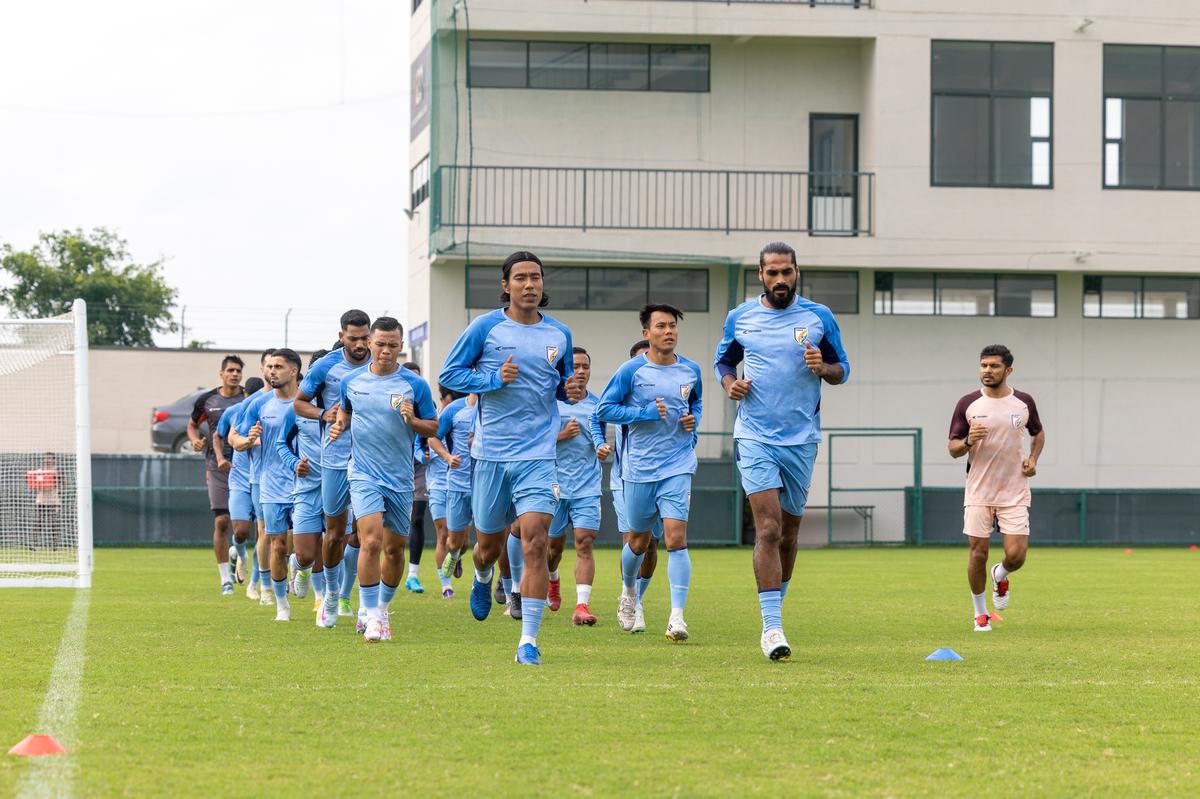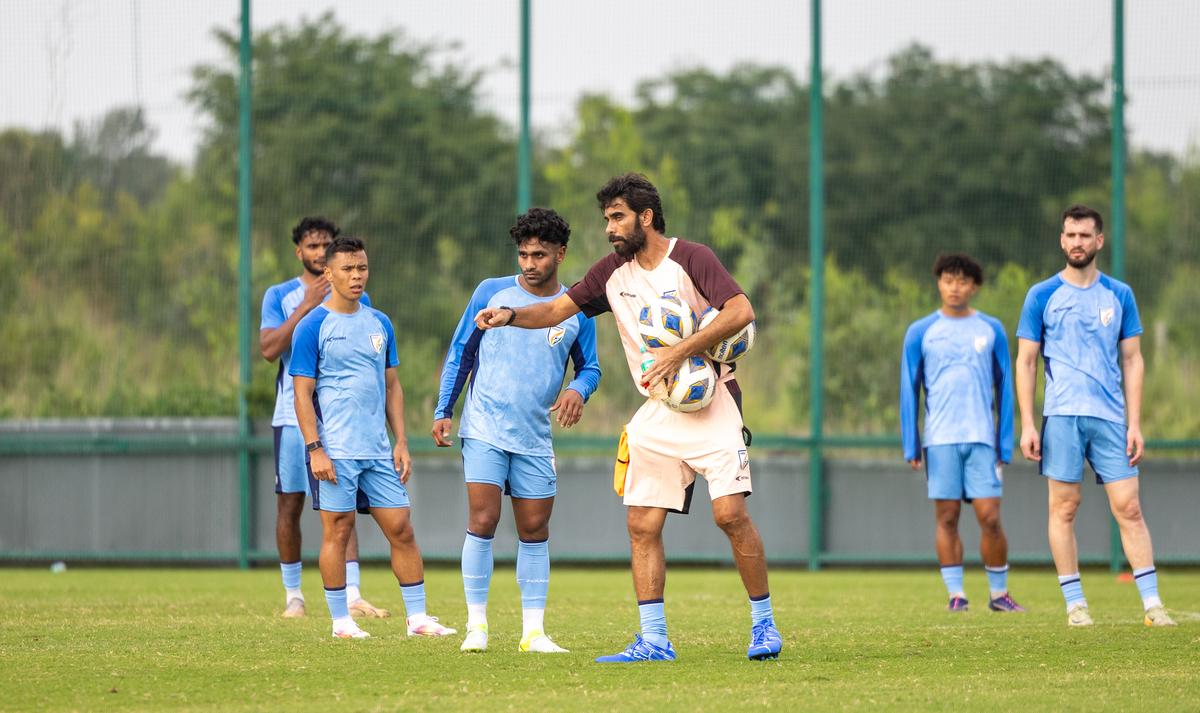On the evening of February 25, 2022, Khalid Jamil cut a solitary figure on the touchline. His NorthEast United FC side had just lost 2-3 to Jamshedpur FC — one of its 12 defeats that season, a stark contrast to the dream run of 10 unbeaten games he had guided it through in the previous campaign.
“One thing I want to say is that I always take the blame — we win or lose because of me,” was one of Jamil’s earliest reactions.
Accountability has been one of the biggest virtues of the 48-year-old, media-shy coach. As he embarks on his journey at the helm of the Indian men’s national team, he demands it now more than ever, from himself and from his cadres.
“Firstly, it is great to work for the nation. Secondly, we have to take responsibility, and it is my pleasure to accept the challenge,” Jamil tells Sportstar in an exclusive interview.
“It is a big one (the opportunity), and it is about the country. We must work together, and the players must also take responsibility for the team. We must work hard as a unit and for India,” he adds.
In the last two years, the Indian men’s football team has foundered in the doldrums of mediocrity.
It has changed two coaches, Igor Stimac and Manolo Marquez, both of whom were seen pushing the envelope of culpability towards the ecosystem or the players, the opposite of what Jamil has done over the years.
Right choice: Accountability has been one of the biggest virtues of the 48-year-old, media-shy coach.
| Photo Credit:
FSDL/ISL Media
Right choice: Accountability has been one of the biggest virtues of the 48-year-old, media-shy coach.
| Photo Credit:
FSDL/ISL Media
Perhaps that very disposition tipped the scales in his favour as the All India Football Federation (AIFF) anointed him, an indigenous son, over two experienced foreign contenders: Stephen Constantine, who had once helped India climb 76 spots in the FIFA rankings, and Stefan Tarkovic, under whom Slovakia played in the 2020 European Championship.
A keen eye
In his 16-year coaching career, Jamil has managed clubs across the three divisions of Indian men’s football and remains the only coach from the country in the Indian Super League (ISL), the current men’s top flight.
In his most recent assignment, he took Jamshedpur to the league semifinals and the Super Cup final.
“I think he is fantastic at reading the game because he knows everything about a player (his ability) and can bring 100 per cent out of an individual. Like, if I am not giving my all, he knows how to get that out of me,” says Albino Gomes, an integral member of the Jamshedpur side and an I-League winner under Jamil at Aizawl.
“In training sessions, he pushes everyone, even if a player thinks he is giving his 100 per cent. That way, that player is motivated to give more.”
Jamil became the first Indian full-time coach of the men’s senior team in 13 years and just the third since 1993. One Indian has taken interim charge since — Armando Colaco — after the sacking of Bob Houghton.
“Indian coaches know the (team) atmosphere and everything about the players. That is an advantage, and their learning capacity is also very good. If they get a chance, they can do well,” Jamil says.

Indian Claudio Ranieri: Khalid Jamil (extreme left) had pulled off one of the greatest underdog stories in Indian football, leading Aizawl FC to I-League title in 2017.
| Photo Credit:
Rajeev Bhatt/The Hindu
Indian Claudio Ranieri: Khalid Jamil (extreme left) had pulled off one of the greatest underdog stories in Indian football, leading Aizawl FC to I-League title in 2017.
| Photo Credit:
Rajeev Bhatt/The Hindu
Having played under some of the best gaffers in modern Indian football, from Dhyan Chand Awardee Sukhwinder Singh to Arjuna Awardee and former India captain Syed Nayeemuddin, Jamil has grown into a repository of accumulated wisdom.
“I have worked with many coaches, both foreign and Indian. All of them have been good and I have learnt many things from them,” he adds.
An uphill battle
Jamil’s first assignment will be a stern challenge — against Tajikistan (2023 Asian Cup quarterfinalist), Iran (a three-time Asian Cup winner) and Afghanistan (a side India has not beaten in over three years), at the 2025 CAFA Nations Cup.
“It is good for us to play against stronger teams. Everybody is motivated to participate,” Jamil says. “There is no complaint at all. We must work hard. Looking at the opponents, yes, they are good teams, but we have to be prepared for that.”

Straight into the fire: India’s first assignments under Jamil will be against three strong teams — Tajikistan, Iran, and Afghanistan.
| Photo Credit:
AIFF Media
Straight into the fire: India’s first assignments under Jamil will be against three strong teams — Tajikistan, Iran, and Afghanistan.
| Photo Credit:
AIFF Media
India’s preliminary squad has been training under Jamil in Bengaluru since August 15, and will fly to Tajikistan for its group-stage matches.
The squad already has some surprise selections, with record goalscorer and captain Sunil Chhetri excluded and likely out of Jamil’s plans for the impending Asian Cup qualifiers.
“Sunil (Chhetri) is a role model for Indian football, and the door is always open for him. He’s not in the camp because we are playing a tournament that will essentially serve as preparation for our Asian Cup qualifiers, and I want to try out a few other players,” Jamil had earlier clarified.
Sunil Chhetri (left), who came out of retirement to help the Indian team in the Asian Cup qualifiers, was excluded by Jamil in his first national camp.
| Photo Credit:
Ritu Raj Konwar/The Hindu
Sunil Chhetri (left), who came out of retirement to help the Indian team in the Asian Cup qualifiers, was excluded by Jamil in his first national camp.
| Photo Credit:
Ritu Raj Konwar/The Hindu
Moreover, Mohun Bagan Super Giant, the defending ISL champion, has declined to release its players as the tournament is outside the FIFA window and clashes with its AFC Champions League Two commitments in September.
On the other hand, the camp has welcomed four new personnel: defenders Sunil Benchamin (the first from the Indian Army Football Team in four decades), Alex Saji, Muhammed Uvais, and forward Manvir Singh.
“Everybody is working very hard, and their intention is very good — that is a good sign. We have very motivated players,” Jamil reassures.
Dynamic approach
By his critics, Jamil might be pigeon-holed as a defensive coach — parking the bus, waiting for a chance to hit against the run of play. But over the years, his designs reveal a more pragmatic approach.
Against possession-dominating sides, he tends to go with a heavy mid and low block (4-4-1-1 against FC Goa in a 3-1 win last season), while against long-ball playing teams, he prefers fluid counters, preferably a 4-3-3 (like in NorthEast United’s wins against Bagan and Kerala Blasters FC in the 2020-21 season).
Last season, Jamshedpur scored multiple goals in 16 games under Jamil, the joint-most for any manager in that campaign, alongside Bagan’s Jose Molina. However, his side conceded the second-most goals (43) in the regular season.

Team first: Jamil’s penchant for forging a potent sense of unity within his teams is his biggest asset.
| Photo Credit:
AIFF Media
Team first: Jamil’s penchant for forging a potent sense of unity within his teams is his biggest asset.
| Photo Credit:
AIFF Media
So how can we expect the Blue Tigers to play under him? “According to situations, we must be careful and play as a team — that is the most important thing,” Jamil says.
Jamil’s penchant for forging a potent sense of unity within his teams is his biggest asset.
Squads assembled on shoestring budgets have overperformed under his tutelage, from Aizawl FC, which won the I-League in 2017, to NorthEast United and Jamshedpur, which reached the semifinals under him.
“He’s the only Indian coach in the ISL for a reason. Though we weren’t a big team, he ensured unity and took us deep into the tournament,” adds VP Suhair, who played under Jamil at NorthEast and Jamshedpur.
“He gives players a lot of freedom. Even with a set plan, he allows us to express ourselves.”
Though the CAFA Nations Cup will be his moment to break the ice, the real litmus test awaits later, when India plays Singapore home and away in the Asian Cup qualifiers. But Jamil is not looking too far ahead.
“We must go step by step. This (Nations Cup) is a big challenge for us. We must get a positive result here,” he says.
With a chunk of national team regulars out, Jamil finds himself in familiar territory — his back against the wall. But he has, time and again, proven such predicaments to be his whetstone, and will hope to savour a similar challenge, clad in new robes, with the tricolour printed on them.
Published on Aug 29, 2025
Content Source: sportstar.thehindu.com

